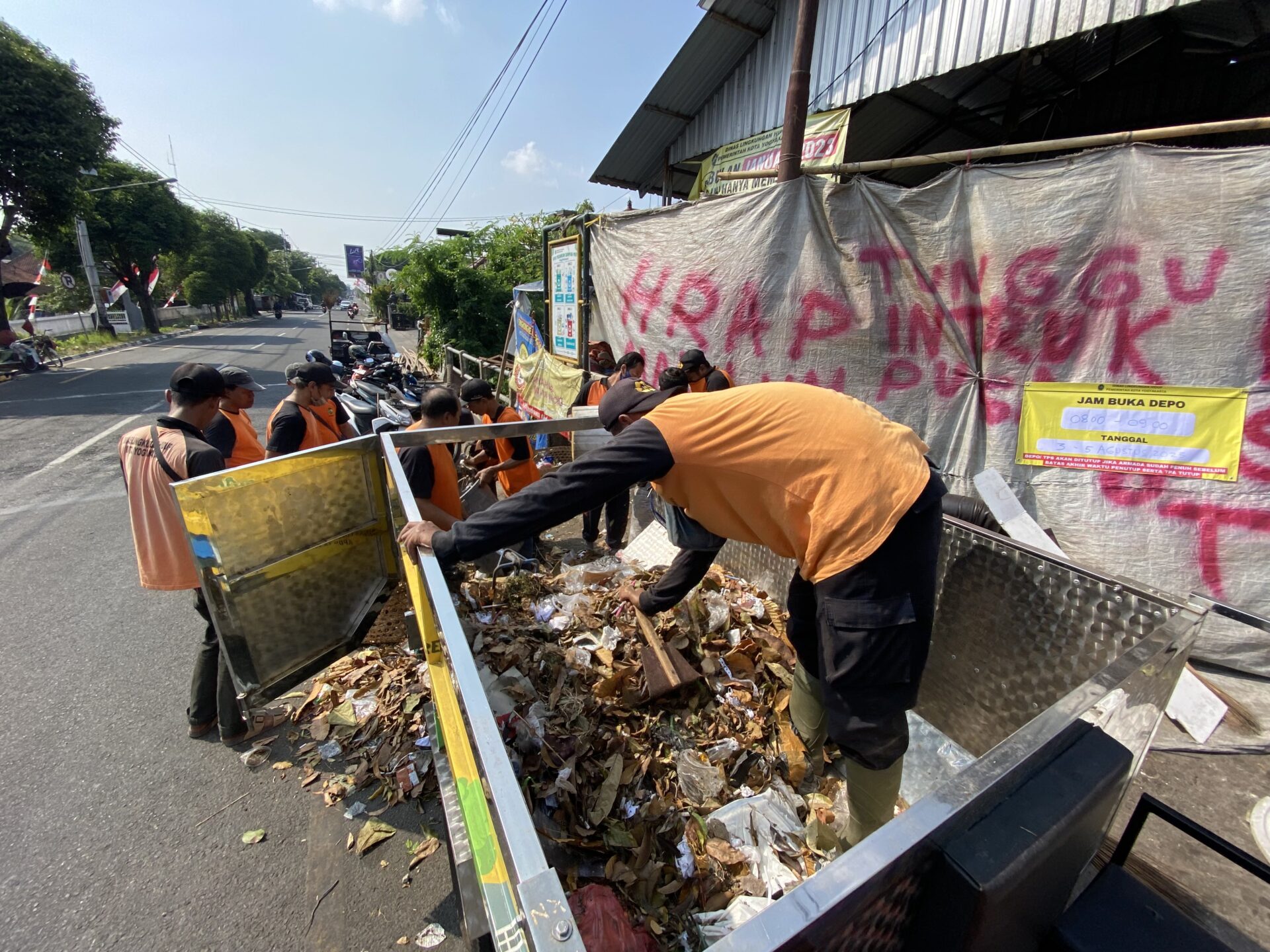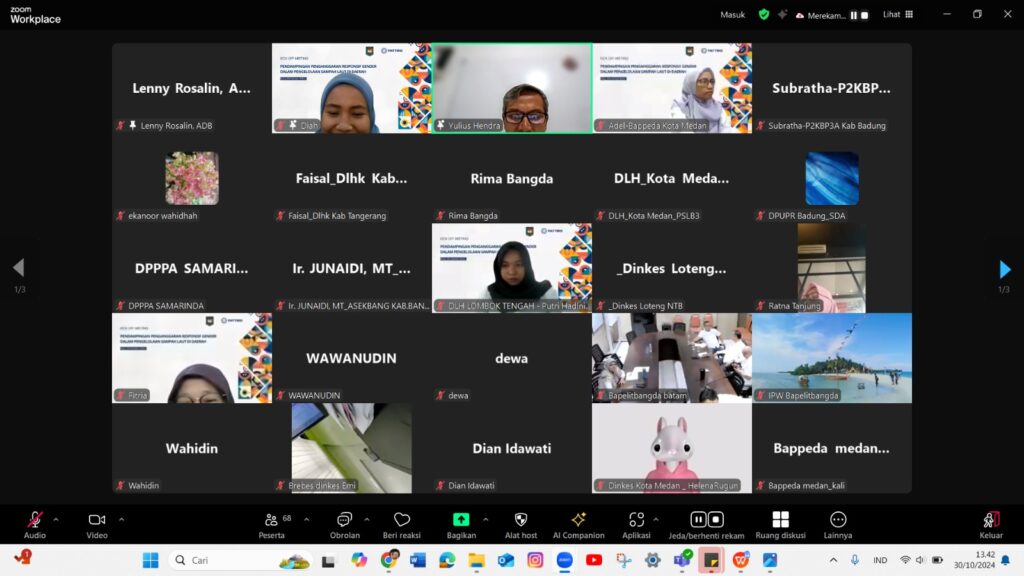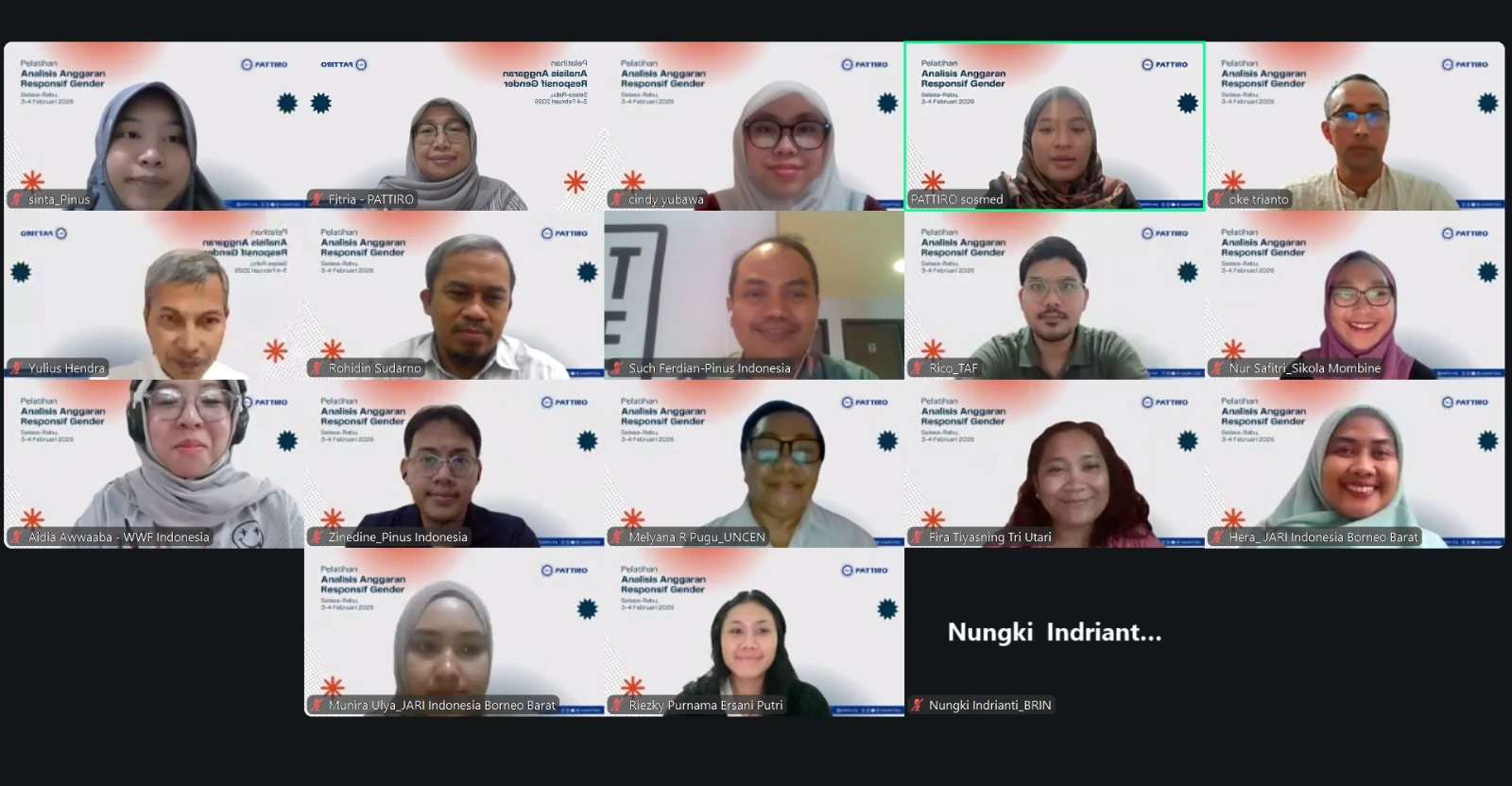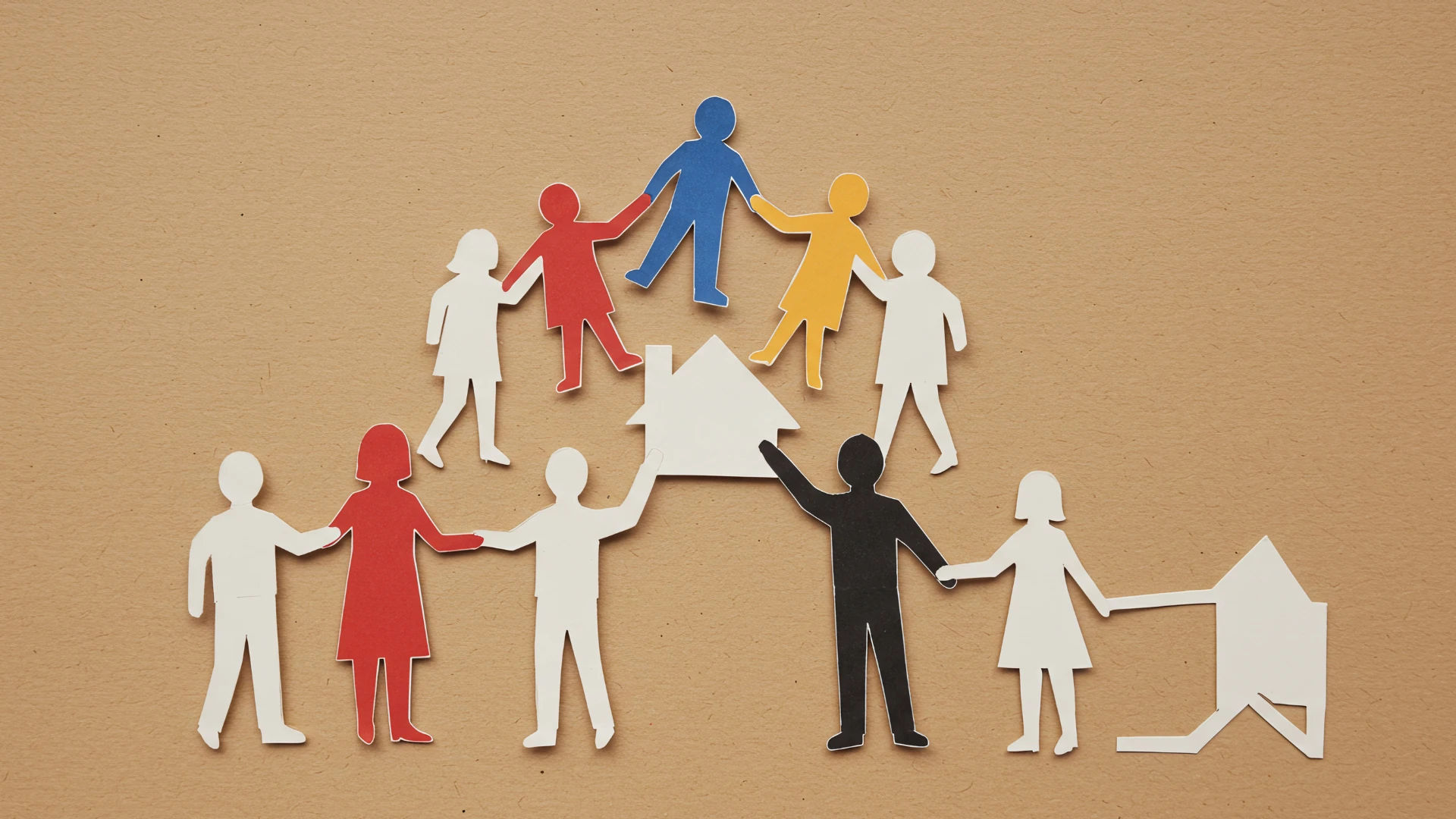 Image Source: https://warta.jogjakota.go.id/detail/index/31013
Image Source: https://warta.jogjakota.go.id/detail/index/31013
Indonesia has a target of reducing marine waste by 70% by 2025 which is stated in the National Action Plan for handling marine waste 2018-2025 in Appendix Presidential Regulation (Perpres) number 83 of 2018 on handling marine waste. However, although efforts have been made since 2018, the achievement of reducing marine waste has only reached 41,68% as of the end of 2023, as reported by the National Coordination Team for handling marine waste (TKNPSL). Thus, it still takes hard work and collaboration of all stakeholders to achieve these targets..
To accelerate the achievement of this target, comprehensive waste management planning and budgeting is needed involving various parties and integrating gender mainstreaming (PUG) approaches to ensure that the needs of women and men are accommodated fairly and equally in each stage of waste management.
“This PUG needs to be integrated in regional planning documents so that it can be implemented, monitored, and collaborated with across regional devices,” said Rima Yulianti Suharin, level I stylist, Ditjen Bangda SUPD I, Ministry of Home Affairs in the Kick Off Meeting of the Gender responsive budgeting Program in Marine Waste Management in the area organized online by PATTIRO in collaboration with ADB (30/10).
 Figure 1. Kick Off meeting Gender responsive budgeting Program in Marine Waste Management in the region (30/10)
Figure 1. Kick Off meeting Gender responsive budgeting Program in Marine Waste Management in the region (30/10)
Currently, PATTIRO considers that PUG in waste management is still not integrated, both in policies and programs/activities/sub activities implemented by local governments. Many regional authorities (PD) implementers still have limited understanding of PUG-related, so this approach is often applied only to involve women in activities without a complete PUG framework.
Although women and men have been involved in waste management such as in Kabupaten Badung, Kabupaten Lombok Tengah, Kabupaten Cirebon, and Kabupaten Brebes, this approach is still limited to providing equal access as waste management workers in landfills (TPA) without an in-depth PUG framework to ensure sustainability and integration of policies and programs.
In some areas, PUG is also often considered sufficient to involve women in household waste management, such as in the city of Batam and Makassar. There, housewives are active as administrators and managers of waste banks. In the management of marine waste in Makassar, for example, Housewives process garbage caught in the nets of fishermen. Although this involvement is already underway, the application of PUG in marine waste management still needs to be improved to be more structured and integrated in regional policies.
There are several districts that already have a better understanding of institutional related PUG, such as Banyumas, Samarinda, and Medan, because it has received assistance implementation PUG . However, Regional devices in these areas still face the challenge of conducting gender analysis and integrating it into regional planning and budgeting documents, especially in waste management programs.
Yulius Hendra, Senior Advisor PATTIRO, explained the importance of pugs in waste management cannot be ignored, considering that both women and men both play a role in producing waste every day.
“The application of PUG in waste management is very important to ensure that policies and programs/activities / sub activities of waste management are able to accommodate the different needs and contributions between women and men. PUG can help remove barriers and hinder access, participation, control, and benefits of waste management for women and men equally, fairly, and on target,” said Yulius. He also added that good waste management is not only beneficial to the environment but also can be a source of income for the community and the region.
Gender Responsive Budgeting Assistance
PATTIRO, with the support of ADB, will provide technical assistance to 10 selected regions to adopt and implement gender-responsive budgeting in marine waste management. These areas include Cirebon (West Java), Brebes (Central Java), Tangerang (Banten), Badung (Bali), Central Lombok (West Nusa Tenggara), Banyumas (Central Java), Samarinda (East Kalimantan), Medan (North Sumatra), Makassar (South Sulawesi), and Batam (Riau Islands). The selection of these regions is carried out jointly with the Ministry of Internal Affairs based on mutually agreed criteria.
Fitria, the person in charge of the activity, explained that this activity does not directly intervene in the community, but seeks to integrate gender issues in policies, such as the RPJMD, Renstra, and Renja Perangkat Daerah. ” This Program will focus on policies related to waste management, not on empowering the community, ” said Fitria. He also hopes that this activity can also support the target of reducing marine waste by 70% by 2025.
Through cross-sector collaboration and a gender-responsive approach, we can achieve sustainable and equitable waste management for all levels of society.




